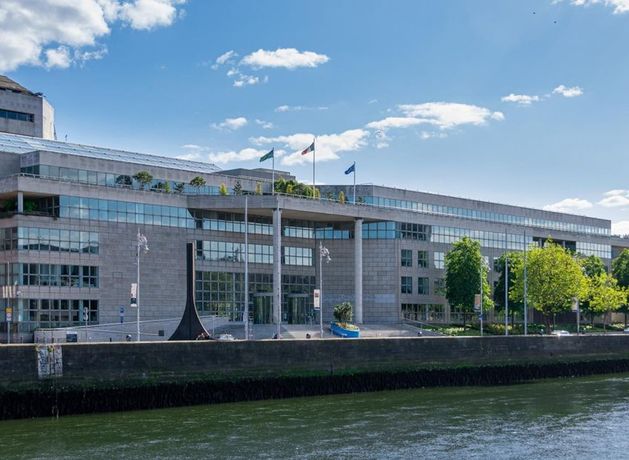The rate of increase will depend on household size and income, but the council said its proposal will primarily affect households with higher incomes and multiple earners.
DCC rents social homes at a rate that depends on the income of the occupants, known as a “differential” rent system.
At the moment, rents are charged at 15pc of the principal earner’s salary, with the first €32 a week exempt from this calculation, and subsidiary earners are charged in the same way up to a maximum of €21 a week.
Up to four subsidiary earners can be included in the calculation, but the fifth and onwards don’t count towards the rental figure.
For self-employed tenants like taxi drivers and tradespeople, the council currently assumes that they earn either €500 or €560 a month.
These figures are all set to increase, with the primary earner now set for an 18pc rate on everything exceeding the first €50 a week. Subsidiary earners will also now contribute up to €40 a week, with the four-person cap lifted.
Self-employed individuals will now be assumed to earn a higher rate of €700 a month, with the council saying the old figures were “not in line with national statistics”.
From 2027 onwards, the authority is also proposing to increase the assumed income of self-employed tenants and the cap for subsidiary earners by 2.5pc a year, in line with social welfare increases over the last decade.
Under the new model, a principal earner in a single occupant household earning a net income of €244 a month can expect their rent to rise 10pc, from €31.80 to €34.92.
For a household with one principal earner on €961 a month and two adult subsidiary earners with a collective income of €900 a month, their rent would increase 35pc from €181 to €244.
With more subsidiary earners in the equation, the increase could climb well beyond 50pc.
The proposal is a way of rebalancing the advantage that higher-earning households currently enjoy, said the council.
“As income rises in households and subsidiary earners are present, the percentage of rent vs household income drops,” council documents on the current system read.
According to DCC calculations, the changes will raise an additional €35m for the authority a year, which would go a long way to plugging the €55m shortfall in its housing maintenance budget.
But Dublin city councillor Mannix Flynn said the proposed increases were “premature” without a comprehensive plan for much-needed works on council complexes.
“There’s no plan that runs alongside this that says, this is what we’re going to do,” he said, adding that many complexes owned by the authority need significant maintenance works.
Speaking to the Irish Independent earlier this year, DCC’s head of housing Mick Mulhern said the council spent between €75m to €80m on housing maintenance every year.
“It’s absolutely not enough,” he said. “I can’t put a figure on it, but you could give me any amount of money, and we would spend it.”
Sinn Féin councillor Daithí Doolan said his party “opposes any proposed rent increases for Dublin City Council tenants. We have worked to minimise the impact on low income tenants.
“Families are really struggling with the cost of living crisis. People are being pushed to the pin of their collar trying to cover food bills, heating costs and fuel chills. The last thing working families need is a rent increase.
“Families in council housing are in overcrowded conditions, poorly insulated, requiring urgent upgrades. Demanding more rent is an insult.
“Families with grown children cannot be demanding more money from them to cover the rent while the same children are struggling to save for a mortgage or a deposit.
“The real problem is that central government are starving us from essential funding to cover maintenance of council housing,” Mr Doolan said.
Funded by the Local Democracy Reporting Scheme

